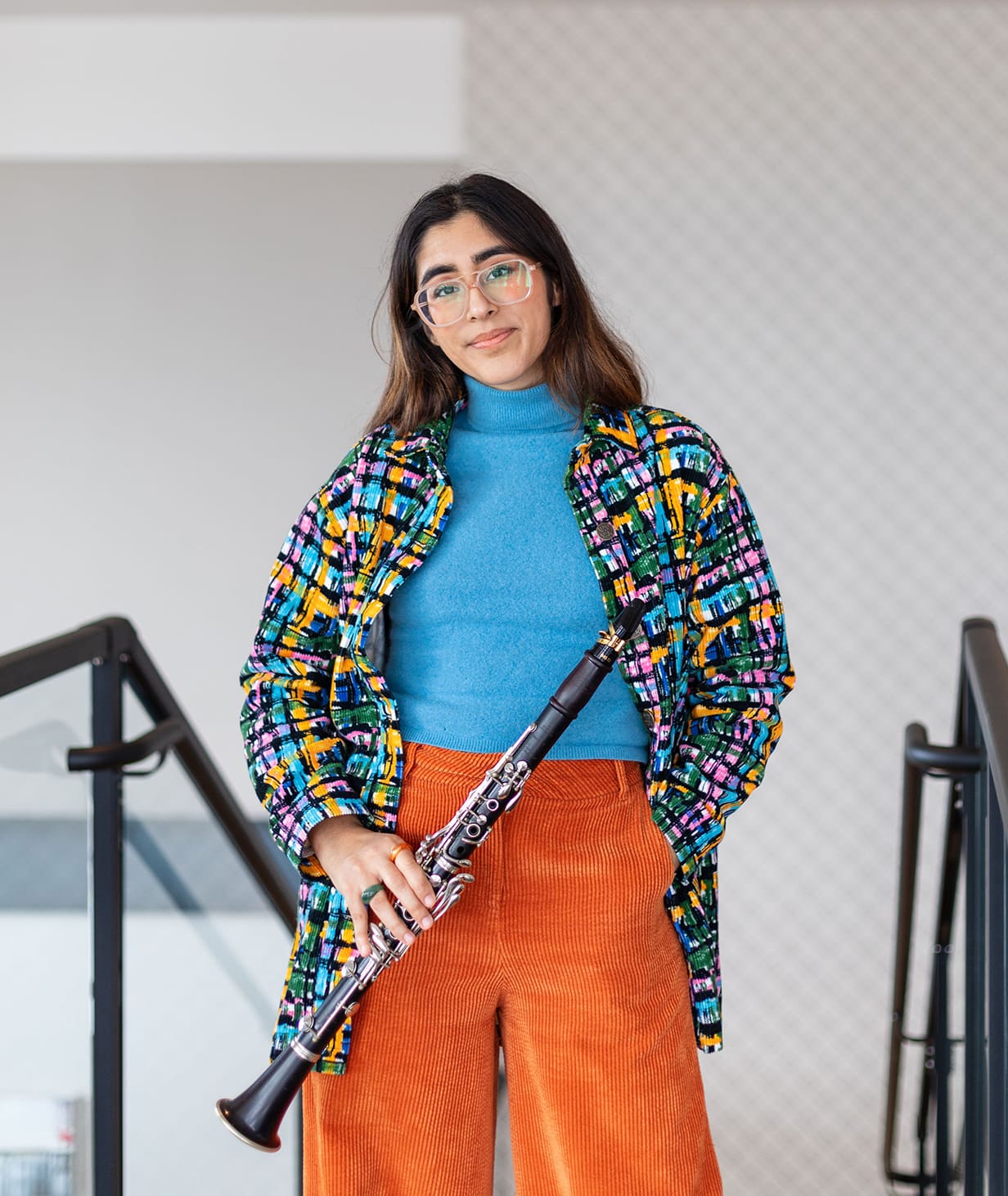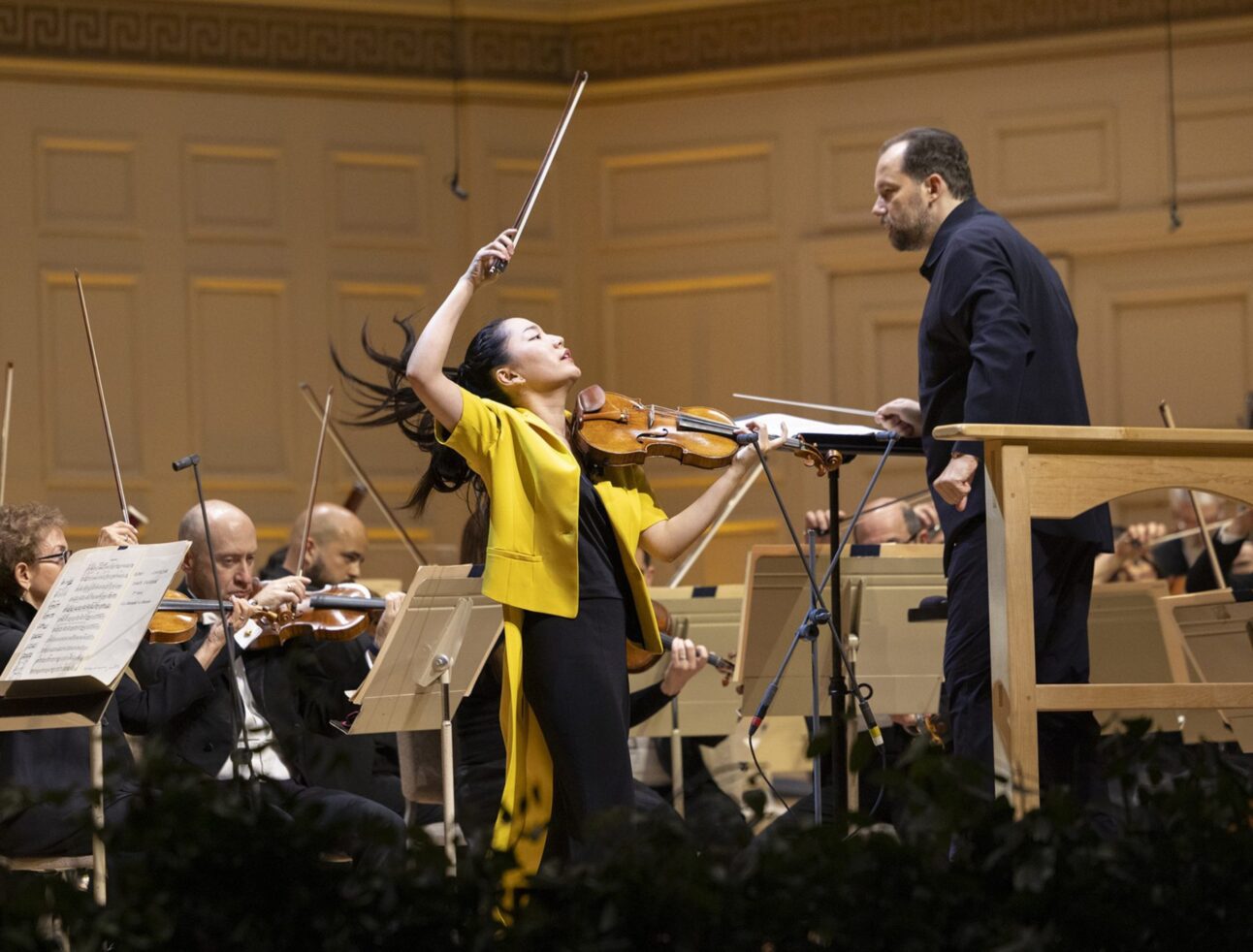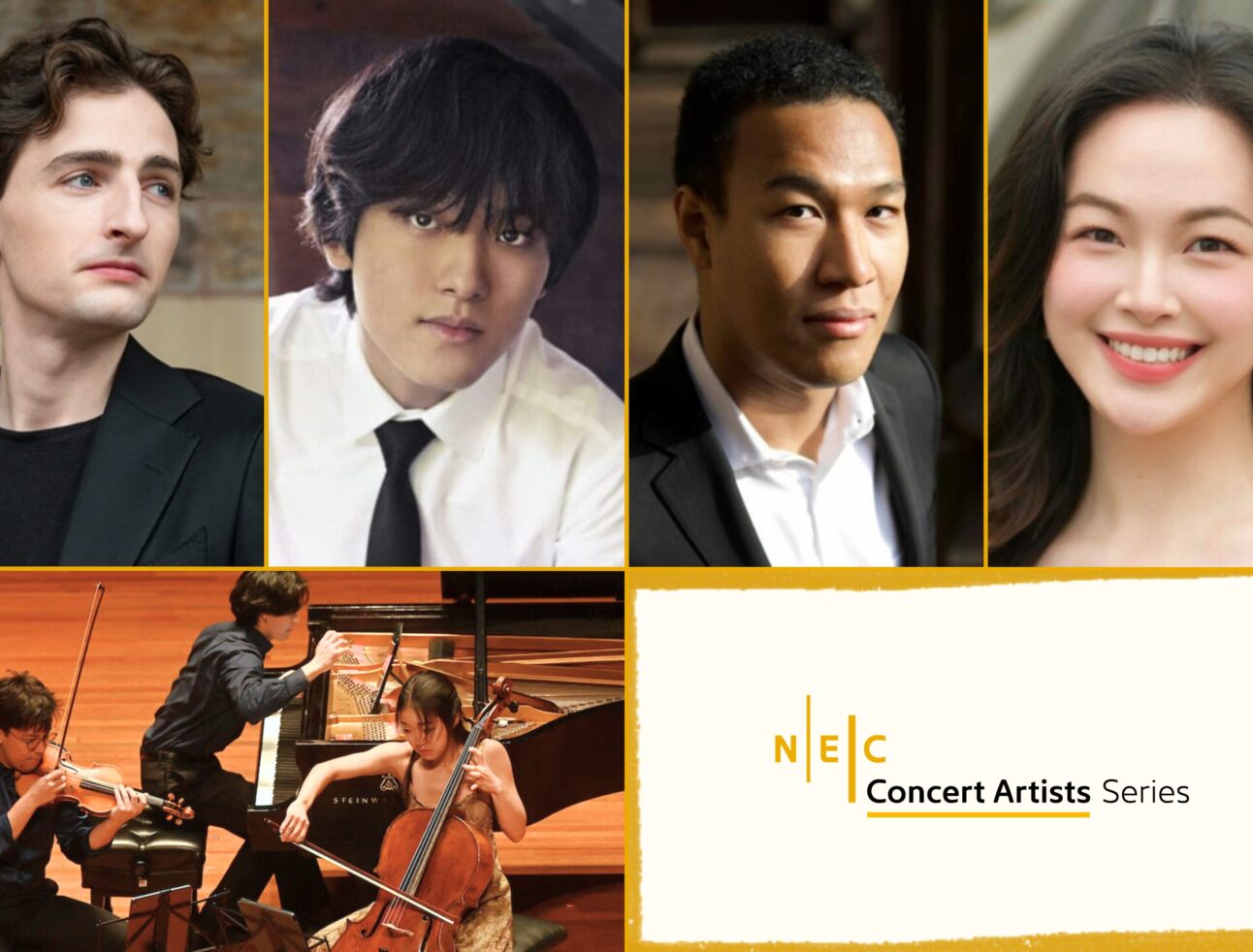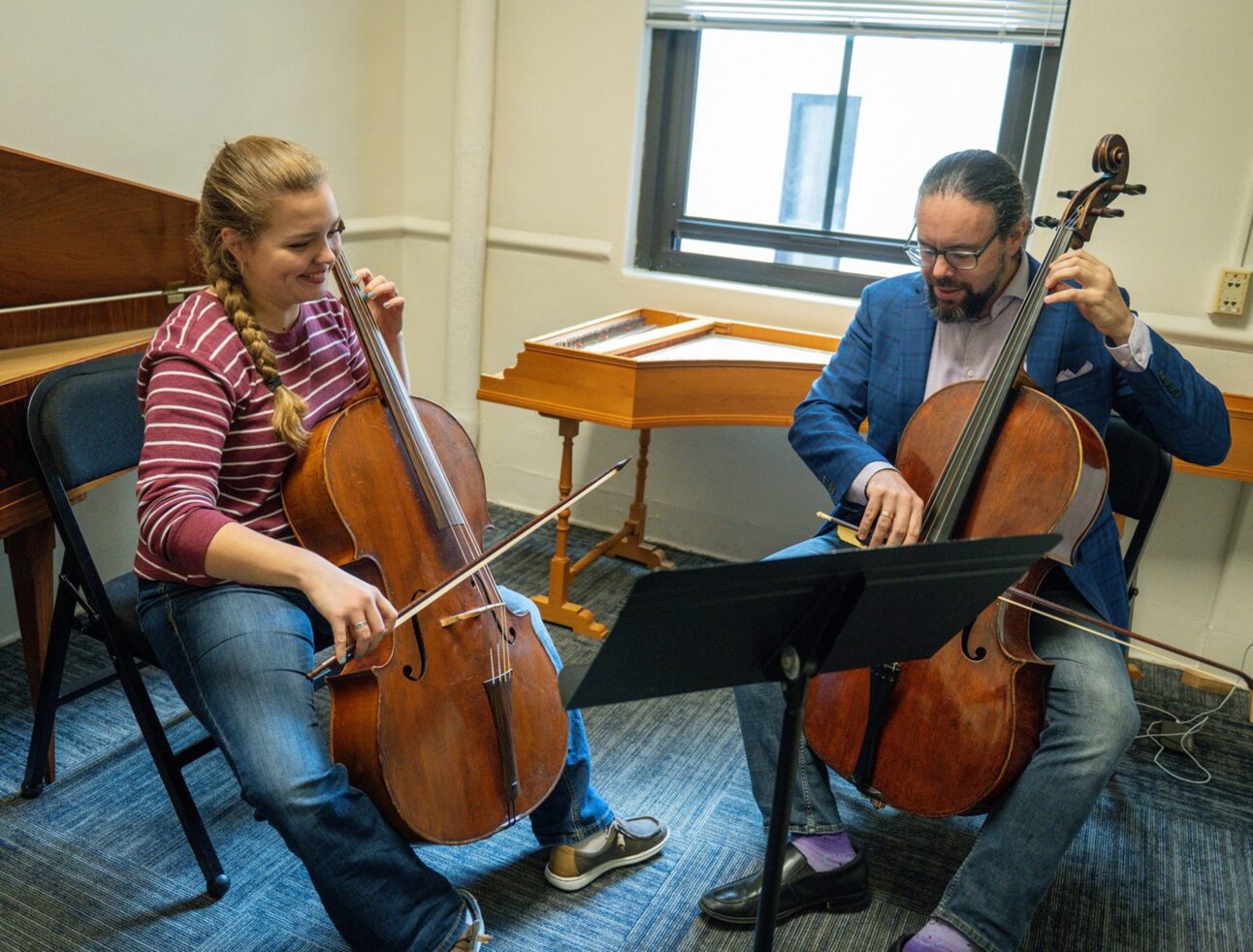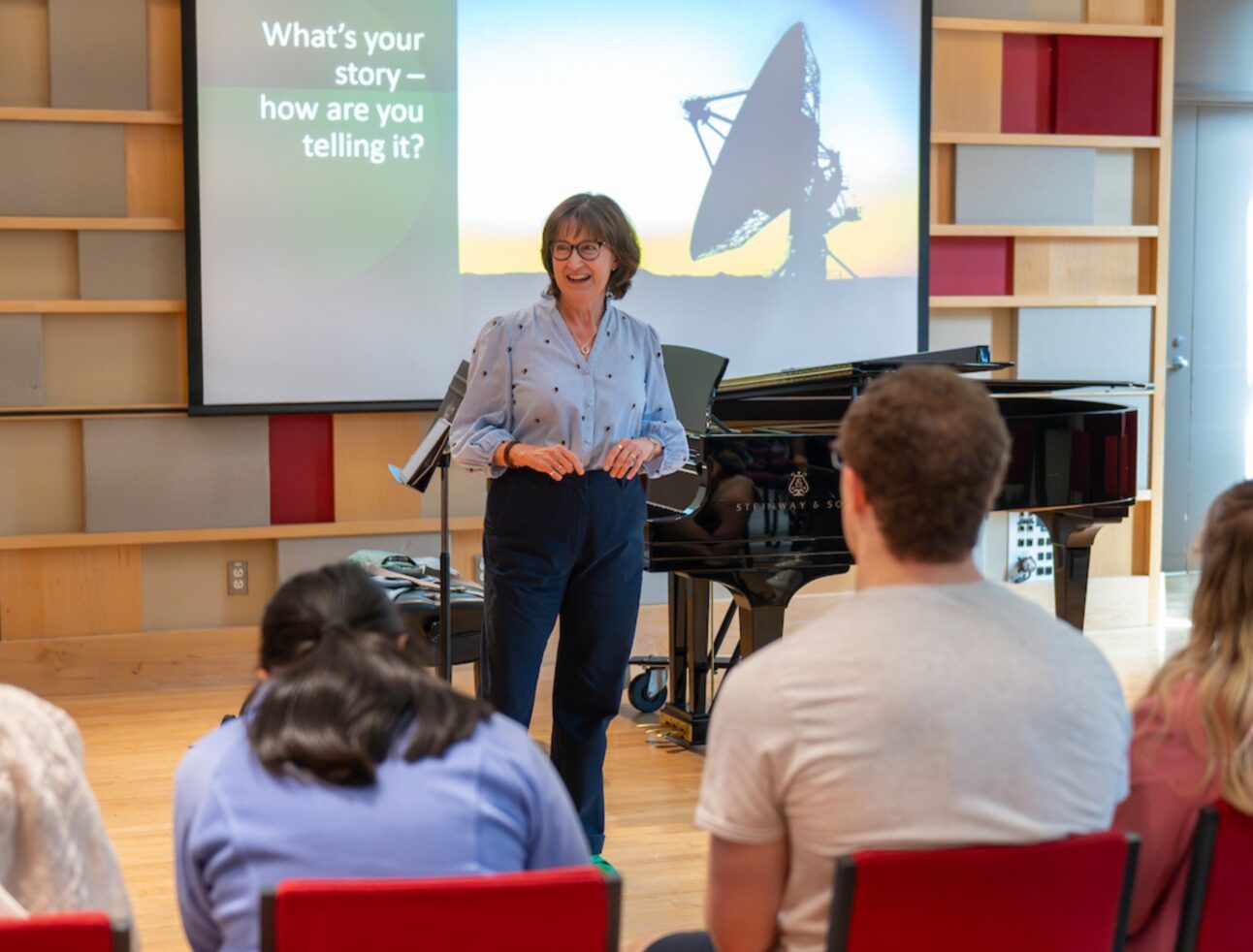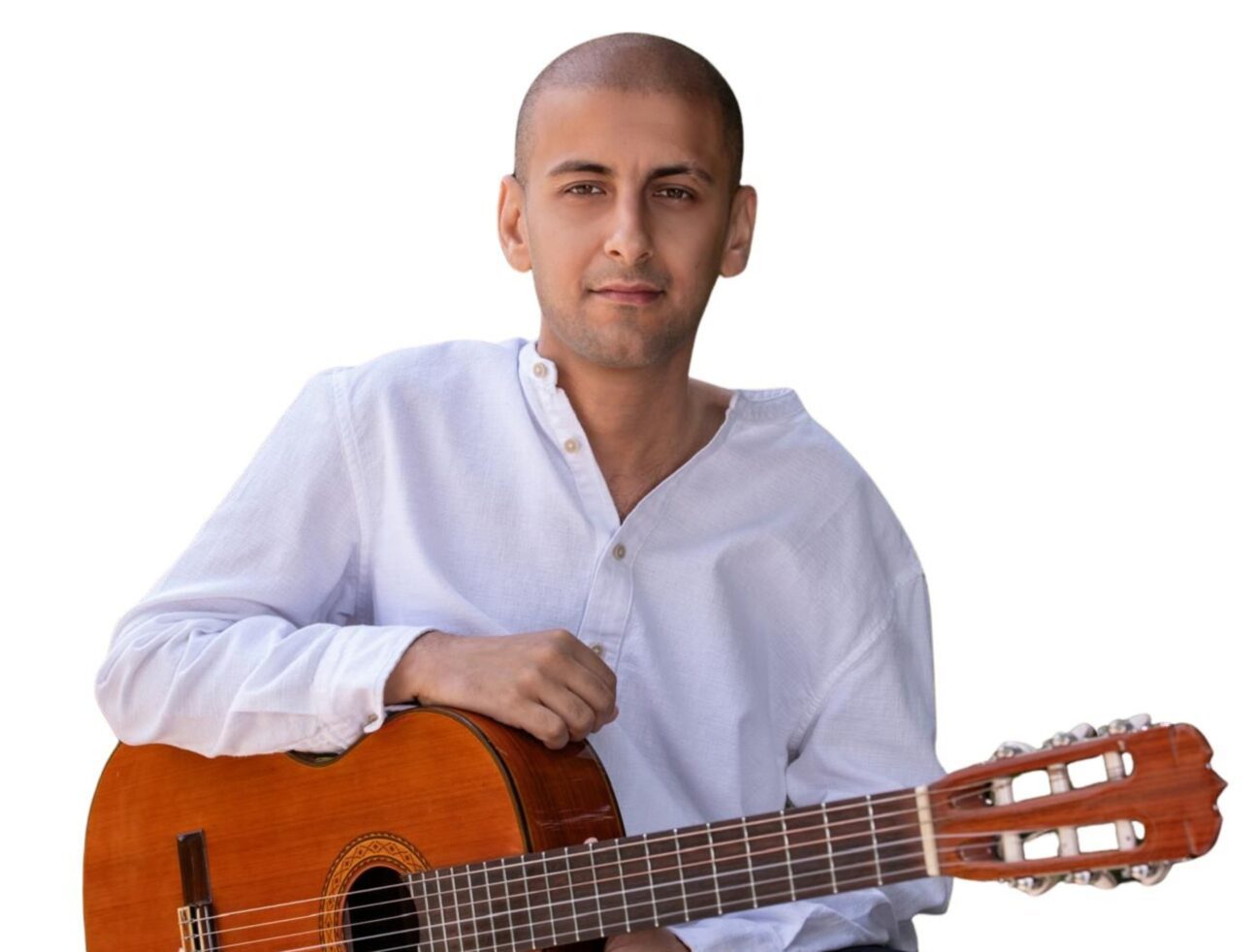When recent Jazz Studies graduate Jahnvi Madan ’24 first arrived on NEC’s campus, she was excited to put her focus on the instrument she fell in love with many years ago — jazz clarinet. She had played the clarinet professionally since high school, leading jazz combos throughout the Seattle area, and was excited to dive wholeheartedly into the instrument here in Boston. Although Madan had never composed a piece of music before, something compelled her to join NEC’s Songwriting Ensemble, led by Dominique Eade, during her first semester. So began a creative journey for the young musician as both a skilled instrumentalist and a promising composer. Just a few years after she wrote her first piece of music at NEC, Madan became the youngest musician to be commissioned by Seattle’s Earshot Jazz to create a new original composition for its 2023 Festival, an outstanding achievement that proves how her music resonates with the public.
Madan’s compositions are deeply personal: “All my music stems from my own experiences and identity, how that identity is something I haven’t grown up with much representation of in the arts, and how I want to bring visibility to it through my music,” she explained. As an Indian-American woman, she described the strange and isolating feeling of not seeing herself represented in the media she consumed while growing up. “Getting the commission from Earshot made me feel like other people see my voice as a voice that should be shared.” A sense of inadequate inclusivity and representation was, in part, what compelled Madan and four other students to found NEC’s Center for Cultural Equity and Belonging in 2021, an action that ensures her positive impact will be felt throughout NEC’s community long after graduation.
As a Jazz Studies undergraduate, Madan studied with many faculty members, including Frank Carlberg, Mark Zaleski, Melissa Aldana, Dominique Eade, Jason Moran, and Anna Webber. Along with her extensive performance experience, she is also a blossoming teaching artist and plans to continue growing her studio post-grad as she works on recording her first album this summer.
What did your journey into music look like growing up?
I grew up with a wide range of music always playing in my house—a mix of Bollywood songs (both of my parents are Indian immigrants), Indian classical music, and jazz. My parents both love jazz, even though, at the time, I didn’t realize that’s what I was hearing.
Then, in a public school program I participated in, you had to choose to be in either band or orchestra. I went to an assembly and heard all the different instruments, and something about the clarinet really excited me. There was something about its sound. They were trying to sound like bumblebees at this assembly, so I’m surprised that I liked that, but for some reason, I did. I started playing, and I became passionate right away. It was like a spark for me.
When I got to middle school, there was a jazz club, but you could only be in it if you played saxophone, trumpet, or trombone, but not clarinet. So, I picked up the saxophone to join because the idea of getting to improvise was exciting to me. I think that’s what really put me on the path towards doing jazz — the amount of creativity and expression in it.
My dad, who is an artist himself, also encouraged me to pursue music. He writes children’s books and paints, but he didn’t make that career change until he was in his forties when I was in middle school. While I was watching him do that, he would tell me, “Don’t wait this long to pursue your passion. Pursue it right away.”
What made you decide to study at NEC?
There were two major reasons. First, I wanted to find a program that would let me pursue jazz clarinet, because not many people are doing that anymore. Just like what happened to me in public school, many college programs required you to focus on the saxophone, and I didn’t want to do that. I felt like I’d never gotten to really focus on this thing — clarinet — that had always been my true passion. NEC was so open to that, which was really cool.
The second reason was that I had a mentor in Seattle, Jacob Zimmerman ’08, who was a really great teacher to me. He had gone to NEC, and he told me to look into it. As soon as I visited, I felt like, “Oh, these people feel like people I would be friends with. These classes feel like spaces where I could succeed.”
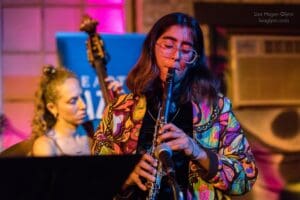
Who would you say are some of your biggest musical influences?
Jimmy Giuffre is my favorite jazz clarinet player. He actually taught here at NEC years ago but has since passed away. I also really love Ella Fitzgerald, Sarah Vaughan, and other older vocal jazz. And I love Bruce Springsteen! Everyone’s always shocked by that, but there is just something about him that I love. I listen to him and Abba a lot. There is a connection there, I think — it’s that kind of raw expression and storytelling. I love that.
When you first arrived at NEC, you had never composed before. Now, four years later, you are earning major commissions. What got you interested in composing, and what inspires you when you compose music?
The first piece I ever wrote was when I got to college. I had never composed before, and I had also never sung. On a whim, I requested to be in NEC’s songwriting ensemble. I don’t know where I found the bravery! At first, I thought it would be a class where they teach you everything. But I showed up on the first day and everyone else had written so much music already. I said to the teacher, Dominique Eade, “I’ve never done this. How do I do it?” And she just told me to bring something in for the following week. That’s all she said! I was like, “Wait, what!?” So I sat down at the piano and I just tried.
My whole introduction to composing was through songwriting, so it was very much fueled by emotion and lyrics. When I write my instrumental jazz compositions, there are often lyrics, even if I never perform them. I’m always thinking about them because they all come from whatever I’m emotionally going through. So my approach is to sit at the piano like I did that first time and improvise until I settle on something that feels like it conveys whatever I’m thinking about. And I go from there.
You are Earshot Jazz’s Northwest Emerging Artist of the Year and the youngest person to be commissioned by Earshot to create a new original composition for their 2023 festival. What was that experience like for you, and can you describe the pieces you composed for the festival?
That experience was so amazing because it came out of a difficult time. I was taking a gap year, and only about one month into the year, I started getting terrible pain in my jaw. I had to stop playing for months and change my entire approach. During that time, I saw that Earshot, an organization in Seattle whose festivals I grew up going to, put out an open call to submit music and a statement about what you would do if you got their commission. I thought to myself, “Well, I’m not playing right now, so I should just apply.”
I was shocked when I got it because I knew it was competitive, and so many people applied. It was very affirming. When I applied, I submitted an artist statement that they didn’t ask for, but I wanted to tell them what I was trying to do with my music. I wrote about how all my music stems so personally from my own experiences and identity, how that identity is something I haven’t grown up with much representation of in the arts, and how I really want to bring visibility to it through my music. Getting the commission from Earshot made me feel like other people see my voice as a voice that should be shared.
I played an hour-long set at Earshot, and a lot of the music was already written during my time at NEC, but I wrote one totally new piece for it. Each piece was connected through themes of culture and identity. The new piece was very different from what I’d written before. I wrote it to feel like a journey that the listener is going on. You start in one place, and it’s about getting somewhere. At the end, the piece returns to where it started, but there’s this feeling of change, which was my goal with it.
Can you talk more about what it means for you to bring your identity into your music?
Growing up, I experienced this existential sense of invisibility because none of the media I was watching and nothing I was reading or listening to was by somebody like me, someone Indian-American. When I got into the arts, that was only perpetuated more. I’m often in rooms where I’m the only woman of color or the only Indian person. As I grew older, I became more aware of the impact that had and how when you don’t see yourself anywhere, you start to question if what you’re experiencing is even real. It’s a very strange feeling. I’m very passionate about the idea that I don’t have to explicitly put Indian elements into my music to encompass these experiences. My approach to performing is always to talk through all my music — I talk about what I was thinking about when I wrote something. A lot of the pieces are more to do with experiences that I think people that come from any of my communities would relate to, more so than trying to represent the experiences sonically.
Reflecting on your time at NEC, what faculty or staff members have been most influential to you?
So many people come to mind! Dominique Eade has been a big support to me throughout my whole time here. I thrive when I feel believed in, and she always believed in me from the start. My composition teacher, Frank Carlberg, has also been very influential to me because he’s so blunt and honest. He taught me a lot about the tendencies I should break out of when composing and has been very straightforward about what I needed to improve.
One aspect of my time at NEC that was very impactful was being one of the five students who founded the Cultural Equity and Belonging (CEB) office. That was a fantastic experience. When I got to NEC, I felt like I was seeing issues at the school and feeling alienated because of them, and I realized there were people around me who felt the same way. Being able to push for change and then see it happen, and for the administration to actually listen to us, was very impactful. And so I would say Monique van Willingh, who runs the CEB office, has also just been a huge part of my time here. I helped hire her, and I’ve seen everything she’s done with the office. She’s always asking me if it’s looking how I envisioned it, which is very cool to feel that she genuinely values our opinions.
Looking back, do you have any favorite performances from your time at NEC?
My first songwriting concert during freshman year was the first time I sang in front of people, so that was a really big moment. My last recital, which happened recently, also felt significant because of how far I have come. One of the songs I performed, in particular, felt like the highlight of the whole thing. As I was preparing for the recital, I thought about where my music comes from and what the songs have in common. I asked myself, “What do I want to do with this opportunity?” I had just performed at Earshot, and I didn’t know what I wanted my recital to be because I wanted it to be more meaningful than just a great performance. I also knew I wouldn’t be able to represent everything I had learned in one recital. So I decided I wanted it to be for my family, because they would all be watching in the audience.
I thought about what I could play for them and ended up performing a lullaby that my grandmother always sang to me as a kid. I thought there would be recordings of the song, but I couldn’t find any. I realized it was a traditional Kashmiri song that no one had recorded before. I thought, “How is that possible?” I found other Kashmiri songs that shared similarities, so I got a sense of how someone might have sung it, but there was no trace of this particular song, which was very interesting. My grandmother passed away, so I only have the memory of it. I asked different family members to sing it for me so I could figure out what it was, and then I arranged it for me and my cousin to perform together. It was an incredible experience. I want to record and release it now because I think someone should record it.
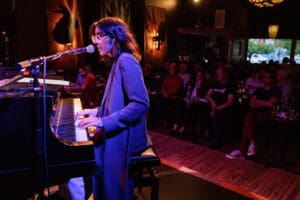
Congratulations on graduating! What do you plan to do next?
My big short-term plan is to record my first album this summer. It will be all original music, as well as the lullaby I sang at my recital. I’m really excited about that. I also love to teach and I’m working on growing my studio right now. When I envision my career, I want to strike a balance between performing with my band and teaching privately. I know I’ll be in Seattle for the next year, working on performing with my band, but after that, I’d like to go to grad school.
Reflecting on your time here, what advice would you give a first-year NEC student?
Don’t be scared. Fear held me back for several years in a few ways. When you get to NEC, especially if you don’t come from a performing arts high school, it can be daunting to be around people who are so amazing. But you have to take thejump and just play with them because jazz is so much about making music with other people. I was so scared to do that for years, but when I got to be an upperclassman, I started doing it and realized, “Oh, these people are so nice. They’re so excited to hear me. They want to play with people, too.”
I feel like what makes NEC special and unique from any other music school, at least that I’m aware of, is how much it’s a place of exploration. There’s this idea here that you can study with faculty members on any instrument in the jazz department, and you can study other instruments yourself, too. I was able to study singing when I had never sung before, and no one said to me, “That’s not what you’re supposed to do.” I hope that students coming in know that they can make the most of that because it’s a rare opportunity to be able to use your time here to try things that you didn’t necessarily come here for as well as what you did.
Learn more about Jahnvi Madan here and keep up with her on Instagram @_jahnvimadan_.
